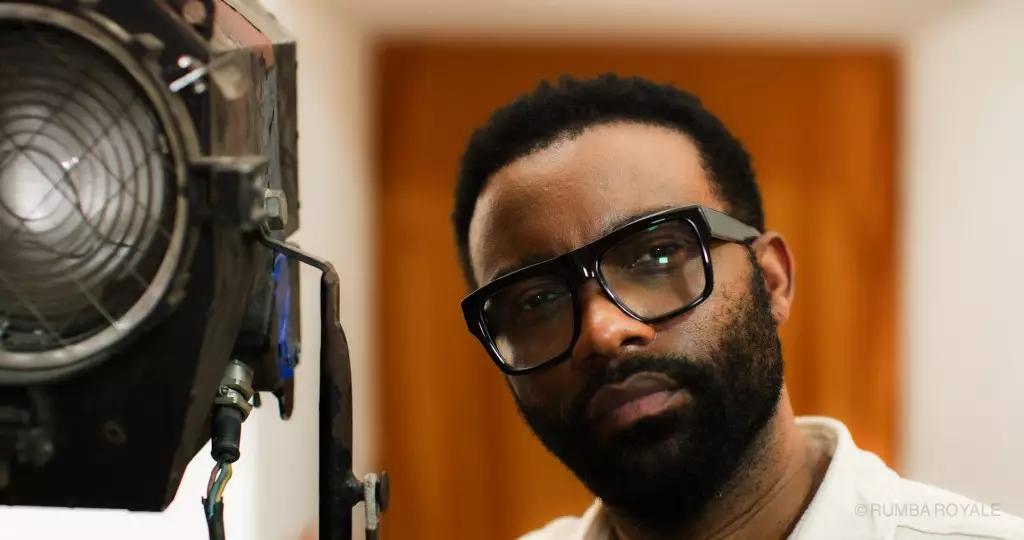Fally Ipupa, renowned for his mesmerizing musical talent and standing as one of Africa’s pivotal music figures, is transitioning into the cinematic realm with his inaugural acting role in “Rumba Royale.” This historical thriller is more than just a film—it’s a cultural statement capturing a critical juncture in the Democratic Republic of Congo’s struggle for independence from Belgian colonial rule. As a major attraction at the recent AfroBerlin event, highlighting African cinema during the Berlin Film Festival, “Rumba Royale” offers a glimpse into the complex historical backdrop and vibrant local culture of the late 1950s.
Set against the electrifying nightlife of Leopoldville (now Kinshasa), “Rumba Royale” weaves an intricate tapestry of the intertwining lives of locals and expatriates amidst the final throes of colonialism. This setting provides a vivid stage for personal and collective narratives, showcasing the cultural tensions and aspirations of a society on the verge of monumental change. As the film unfolds within a Rumba club, it serves as a microcosm for the broader societal shifts occurring in Congo, marking a pivotal moment in history when independence was just a heartbeat away.
Fally Ipupa takes on the role of Danel, a bohemian photographer, adding depth to the film’s exploration of identity and artistic expression. His character is likely crafted to resonate with cultural duality, embodying both the local spirit and the external influences of a colonial presence.
Ipupa’s dedication to his craft extends beyond the realm of music into this new chapter of acting; he’s adamant that hard work, rather than sheer talent, defines success. During a recent Zoom interview, he recounted the challenges of balancing his musical commitments with the demands of shooting a film, shedding light on the rigorous preparation he undertook before stepping in front of the camera. This work ethic, which has propelled his music career, is apparent in his approach to acting—he understands that talent alone won’t suffice without the rigorous discipline and preparation that underpin both fields.
Director Hamed Mobasser echoed these sentiments, praising Ipupa as one of the hardest-working actors he has encountered. His presence on set was a reassuring constant, with the star often among the first to arrive, ready to embark on the day’s work. This level of professionalism reaffirms the fact that, in any industry, dedication can pave the way for genuine artistic development.
Mobasser’s aspirations for “Rumba Royale” extend beyond mere storytelling. He hopes that this film will act as an “icebreaker,” showcasing the viability of quality commercial filmmaking in the DRC and wider African context. The potential for the film to penetrate markets across Ivory Coast, Cameroon, and beyond is compelling. By showing audiences that powerful narratives can emerge from African stories, “Rumba Royale” may catalyze a burgeoning interest among producers in the continent’s filmmaking potential.
With a focus on capturing the South-to-North audience, as well as re-engaging the African diaspora, the film also seeks to challenge prevailing stereotypes about African cinema and encourage more diverse global narratives. The ambition of taking African storytelling to international audiences marks a significant step in the evolution of films originating from the continent.
As Fally Ipupa steps into his role in “Rumba Royale,” he not only embraces a new form of expression but also contributes to a burgeoning movement within African cinema. His enjoyment of the craft suggests a genuine passion for storytelling that goes beyond financial gain—a refreshing perspective in an industry often criticized for its commercial motives. The synthesis of music and film presents an exciting opportunity for cross-pollination in the arts, and with the launch of “Rumba Royale,” Ipupa’s journey points to the possibility of new creative avenues that celebrate and explore African culture, identity, and history.
“Rumba Royale” stands as a testament to Ipupa’s multifaceted talent and the broader potential of cinema to reflect and shape societal narratives. As more artists like him embrace the world of filmmaking, the rich tapestry of African stories has a chance to find an eager global audience.


Leave a Reply